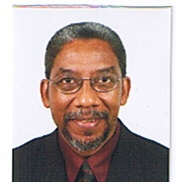|
In the lead up to the 60th anniversary of TT Independence, there is a plethora of media discussions and promotions focusing on the significance, achievements of the occasion and history as well as assessing the Independence and nation-building experience.
During one such radio talk show, the 1970 Revolution inevitably came up. Different views assessing that significant development varied between describing it as a dark period and a negative in the Independence journey. Some even equating it with the July 27, 1990, attempted coup. One host, however, said that 1970 must be seen as a positive experience of our young independent country because it brought about several positive changes, significantly the creation of employment opportunities denied many young, educated people who had been excluded from the banks and other institutions because of persisting racial discrimination. This piece is an attempt to put 1970 in perspective; what led up to it just 8 years after the heady atmosphere of anticipation as Independence approached, what was the nature and significance of 1970 and its influence on the nation-building project. There are now several articles, books like POWER - Interviews 1970 T&T Part 1 Edited by Chike Pilgrim and video presentations like ’70 Remembering a Revolution (https://youtu.be/MMSdiCluRME) describing the atmosphere and events of 1970 including analyses published on the occasions of the 20th and 50th anniversaries of the ’70 Revolution. Several cultural shows and performances, like Rawle Gibbons De Roaring 70s, various calypsos and other expressions of the visual and performing arts also record that important period, including exhibitions by the National Trust at Nelson Island and records of the National Archives. (View Valentino’s music video here - https://www.youtube.com/watch?v=n75Pki_loZ4). The Turbulent 60’s The economy of the country had become heavily dependent on the oil industry heading into the 1960’s. “The oil industry … became the main factor in the country’s GDP and exports (up to 80% of foreign exchange earnings by 1960-61). “Economic growth of 8-10% per annum in the 6 years leading to 1961 declined to 1% in 1962 as world oil prices plunged”[1]. So, the advent of Independence the economy experienced difficulties as oil prices slumped in 1962 and other sectors were not creating jobs or foreign exchange earnings as projected. “The workers and their unions were fighting battles to save jobs as employment in oil fell by 3% between 1965 and 1969. Automation in sugar led to retrenchment and in other sectors job cuts were the order of the day. In June 1968, 10,000 workers joined in a March of Resistance. TIWU led the challenge against the ISA with strikes at Sissons Paints in 1967 and in public transport in June 1968 and the May 1969 Bus strike. The disaffected among the unemployed and the intelligentsia at UWI were also in action. Some lecturers were challenging the thinking and policies of the Government. The university students engaged in protests on 26 February 1969 in support of 11 Trinidadian students arrested at Sir George Williams University in Canada”[2]. “On March 18, 1965, Government released the report of the Mbanefo Commission which was set up in 1963 to investigate what government and some ‘conservative’ trade unionists called ‘subversive political activity’ in the trade union movement. In just 48 hours, 18-20 March 1965, the Industrial Stabilisation Act was passed in Parliament and assented to by the Governor General. This law was principally aimed at restricting the workers right to strike. It banned strikes in ‘essential services’ – electricity, fire, health, water and sanitation. It introduced compulsory arbitration at the Ministry of Labour and in the Industrial Court. Williams himself later declared that the ISA was aimed against “the subversive elements in the society.” and that the “background was an open attempt to link the trade unions in oil and sugar”[3] (Eric Williams, Inward Hunger, p 311) “All these currents fed into what erupted on 26 February as the 1970 Revolution led by NJAC which was formed that night by students, youth, workers and their unions. In 1970, mainly young persons, disillusioned with the persistence of the colonial construct, sought to address social inequality, foreign domination of the economy, racial inequality and poor political representation”[4]. Other authors have analysed the 1970 Revolution and point to the same factors as contributing to the explosion of dissatisfaction and discontent and compared the ’70 Revolution to the 1937 Butler Riots[5]. The Revo and the Response The 1970 Revolution was the second attempt by segments of the population to intervene and give definition to the nation-building project. The first was the work of Pegasus and its creation and preparation of its Project Independence plan for nation-building between 1962 and 1967. Not accidentally, the same man was to play a leading role in the founding of the organisations that led both attempts as people’s definition of the nation-building project – Pegasus and NJAC. “The shouts of ‘Power to the People’ and sound of marching feet filled the air. The clarion call “Indians and Africans, Unite!” urging unity of the People, was inscribed on the banner. The youth re-examined history seeking a better understanding and appreciation of the society and its people and to define project independence anew. The response of the ‘independence’ state was a mixture of ignoring ideas for a new development approach, offering a minimum of concessions, State of Emergency, imprisonment of leaders and brutal repression including the attempted dreaded Public Order Bill. Like the colonial authorities’ response to the Butler Riots, the approach to the 1970 Revo was ‘Smiles and Blood’ – token concessions and severe repression. Against those who dared resort to arms, the answer was blood and steel. Against the adherence of the youth to revolutionary ideas of change, a new element was introduced to the society - the mass culture of illicit drugs. A series of “Woodstock” events became an outlet for promoting narcotic drug use”[6]. Some of the deepening problems of violent criminality and social decay that we face today can be traced back to the very responses of the state and the controllers of economic and political power to the people’s intervention in the 1970 Revolution. 1970, therefore, is not a dark day for our Independence. It was part of the birth pangs of our newly independent country and society seeking to chart its way on the path of nation-building as a sovereign people taking charge of their own destiny. Clyde Weatherhead Citizen and Advocate for Democratic Renewal of our Society and Governance 27 August 2022 Project Independence: After 56 Years is available here - https://www.amazon.com/Project-Independence-After-56-Years/dp/1094638048 [1] Weatherhead, Clyde, Project Independence: After 56Years, 2019, pp 24,26 [2] Ibid, pp 44 -45 [3] Ibid, pp 42-43 [4] Ibid, p 45 [5] Chike Pilgrim, Susan Craig-James, Taylor, Fiona-Ann, Two Twentieth Century Upheavals in Trinidad: the 1937 Labour Riots and the 1970 Black Power Uprising, a Comparative Analysis. Diss. The University of the West Indies, 2002. [6] Weatherhead, Clyde, Project Independence: After 56Years, 2019, pp 46-47 Comments are closed.
|
AuthorI am a appalled at the loss of the simple skills of discussing ideas and sharing Opinions to DEEPEN ANALYSIS and UNDERSTAND DEVELOPMENTS to ARRIVE AT SOLUTIONS. Archives
April 2024
Categories |

About Clyde Weatherhead
Clyde has been involved in public life as a political activist, a trade unionist, Lawyer, Teacher and Author |
Connect With Clyde
Write to Clyde on Facebook Visit Clyde's Author Page on Amazon Go To Discussion on Facebook For Employment Relations Issues |

 RSS Feed
RSS Feed